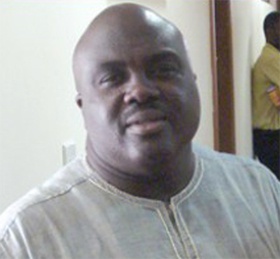
Mr Julius Debrah, Minister of Local Government and Rural Development, on Wednesday demonstrated commitment to time and discipline, when he refused to swear in newly-nominated District Chief Executives (DCEs) for Lower Manya Krobo and Kwahu East for coming to the ceremony late.
It took the intervention of a delegation from the Manya Krobo Traditional Council, led by a representative of the Konor, Nene Sackite the third, who accompanied the newly-nominated DCE, Mr Jacob Acolatse, for the Minister, to rescind his earlier decision not to administer the oath of office to Mr Acolatse, to serve as a lesson.
In what looked like a drama, the large retinue of chiefs and people from the Lower Manya Krobo area entered the Regional Coordinating Council (RCC) Conference Hall when the closing prayer was being said, after Mr Emmanuel Kwakye the only nominee present had been taken through the oaths of office, secrecy and allegiance.
As at the closing of the entire programe at 9.45am, the nominee for Kwahu East was still not present, and therefore his swearing-in was re-scheduled by the Minister who is also acting as the Regional Minister.
Originally, the swearing-in of the three DCEs for the Birim South, Kwahu East and Lower Manya Krobo, was slated for 8.30am, but as at 9am when the Minister walked into the hall after waiting for 30 minutes, only the nominee for Birim South, Mr Emmanuel Kwakye was present.
Mr Julius Debrah who is the immediate past Eastern Regional Minister, registered his disappointment at the gross indiscipline showed by the newly-nominated DCEs, adding that it was a bad signal on their first day of office.
He, therefore, charged them to respect time and the people whom they are going to serve.
The Minister who did not take kindly to the conduct of the DCEs said, time consciousness was key to every endeavor, and advised the DCEs not to repeat that conduct.
He charged them to be innovative in revenue generation, without relying on the common fund to provide the necessary needs of the people, since government’s purse was hard pressed.